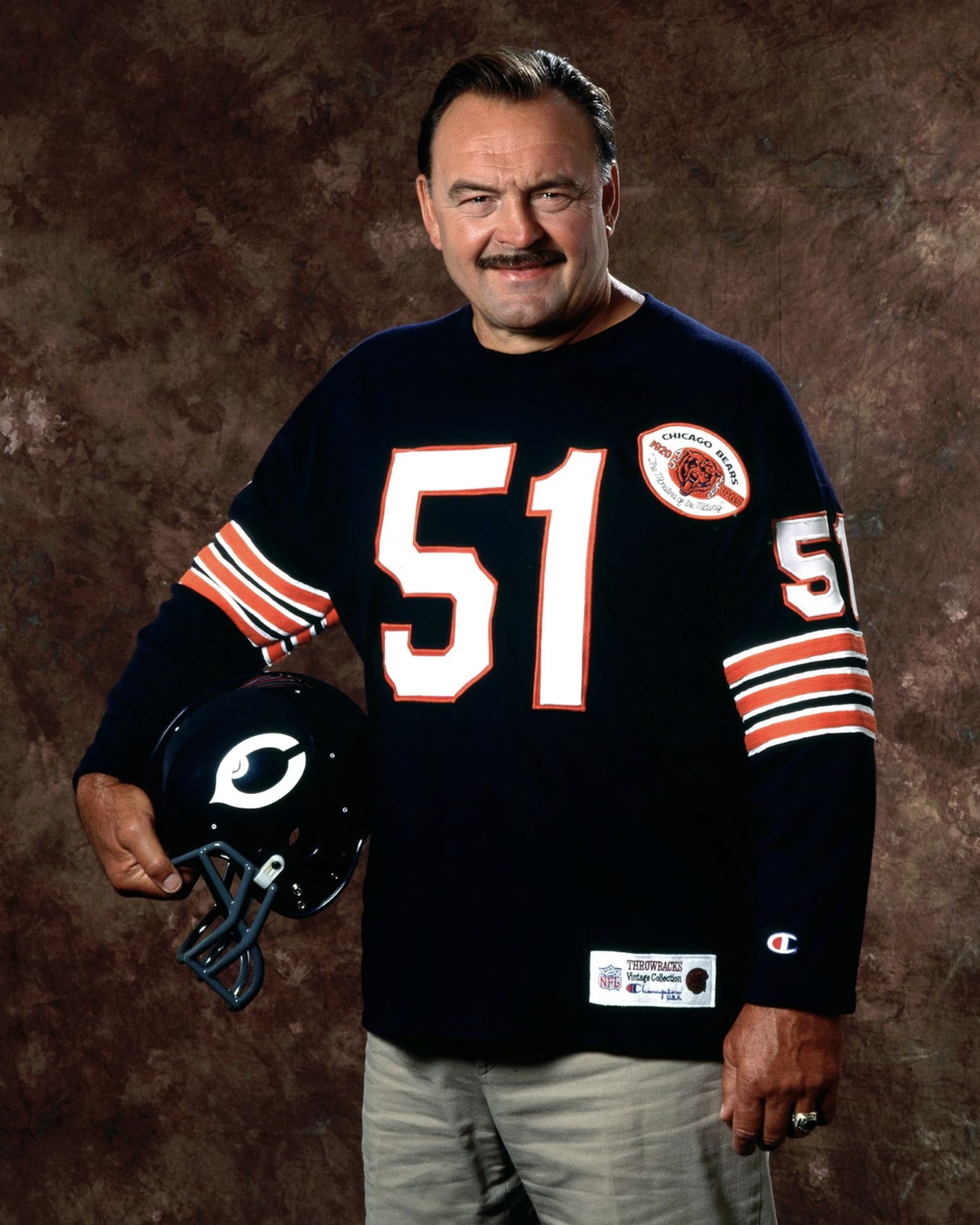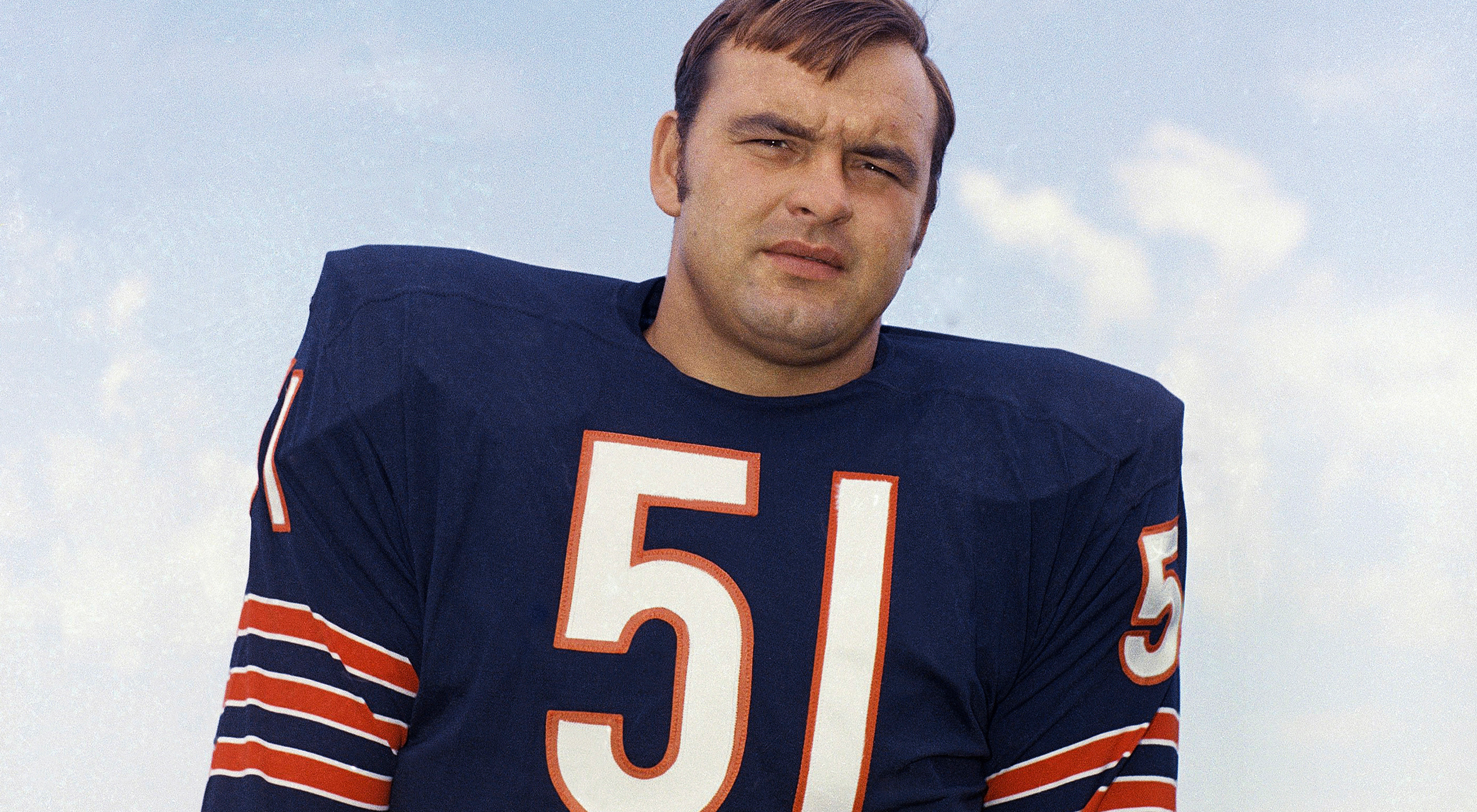Remembering Dick Butkus

Middle linebackers today may look like receivers, but in the 1960s, many of them represented the very (stereotypically) tribal nature of the game. Perhaps no one better fit this description than Dick Butkus. He had brawn shoulders, little words, back-breaking tackles and a military cut that would’ve even instilled fear in Gunnery Sergeant Hartman.
Born to Lithuanian-American parents in Chicago’s South Side, Butkus was the youngest of eight children, but was noticeably lonely in his formative years, only consoling to a select few and valueing loyalty above all else. As it would become apparent throughout his life, football itself would become his best friend as he ascended the ranks at the University of Illinois and eventually being drafted by both the upstart Denver Broncos of the AFL and third overall by his hometown Chicago Bears in the 1965 NFL Draft. Unsurprisingly, he would go on to play for the latter, despite being paid less.
“He’s a great example of what this city is,” recounted former teammate and Bears legend, Mike Ditka. “I don’t think this city is a boisterous city, I don’t think this city is a loud city. This city is a strong, hard-working, blue-collar city and that’s what Butkus was.”
During his pro career, Butkus would amass five first-team All-Pro titles, eight Pro Bowl selections, an induction into the Pro Football Hall of Fame in 1979, along with 27 forced fumbles, 22 interceptions and 11 sacks, which doesn’t account for the devastation he caused on opposing QB’s because the sack stat wasn’t official until 1982.
Just like Bobby Boucher, Butkus would create stories in his head of people antagonizing him to get himself mad. “If someone on the other team was laughing, I’d pretend he was laughing at me or the Bears. It always worked for me,” Butkus mused. “In most people’s minds,” said Ed Stone of the Chicago American, “he is still the most powerful symbol of the violent nature of the game.” But as intimidating and primitive as the man was on the field, he was a deeply misunderstood player, a sensitively complex player who represented a still complex game.
Rest in Power, Dick.
